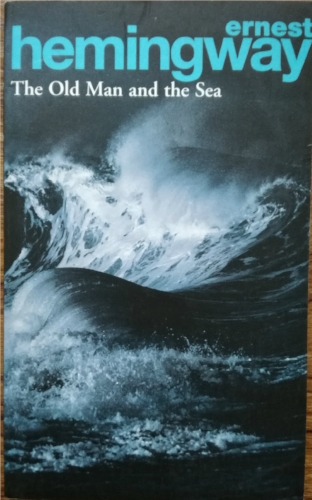Book Review - 'The Old Man and the Sea' by Ernest Hemingway
So, my very first taste of Hemingway. I don’t know why I always shied away from his work before. But a friend recommended adding this to my reading challenge list and I thought, why not.
‘Set in the Gulf Stream off the coast of Havana, Hemingway’s magnificent fable is the story of an old man, a young boy and a giant fish. In a perfectly crafted story, which won for Hemingway the Nobel Prize for Literature, is a unique and timeless vision of the beauty and grief of man’s challenge to the elements in which he lives.’
Hemingway has written this story, which is basically about a fisherman wanting to catch a big fish after over eighty days of having caught nothing, in a sparse but beautiful way. No word is wasted.
His skilful use of just the right words was enough to place me in the moment. Did he agonise over each word, I wonder, wanting to choose the exact right one? If he did, it doesn’t show; the writing flows effortlessly, like in this description of the old man.
‘The old man was thin and gaunt with deep wrinkles in the back of his neck. The brown blotches of the benevolent skin cancer the sun brings from its reflection on the tropic sea were on his cheeks. The blotches ran well down the sides of his face and his hands had the deep-creased scars from handling heavy fish on the cords. But none of these scars were fresh. They were as old as erosions in a fishless desert.’
In his exchanges with the boy, the sadness and loneliness of the old man’s life are laid bare, along with the deep poverty.
‘On the brown walls… there was a picture in colour of the Sacred Heart of Jesus and another of the Virgin of Cobre. These were relics of his wife. Once there had been a tinted photograph of his wife on the wall but he had taken it down because it made him too lonely to see it and it was on the shelf in the corner under his clean shirt.’
‘The boy went out. They had eaten with no light on the table and the old man took off his trousers and went to bed in the dark. He rolled his trousers up to make a pillow, putting the newspaper inside them. He rolled himself in the blanket and slept on the other old newspapers that covered the springs of the bed.’
What fascinated me was the old man’s knowledge of the world around him and the sea. He didn’t need a timepiece to tell him when morning was coming; he could feel it…
‘In the dark the old man could feel the morning coming and as he rowed he heard the trembling sound as flying fish left the water and the hissing that their stiff set wings made as they soared away in the darkness.’
He didn’t need a weather forecast…
‘The strange light the sun made in the water, now that the sun was higher, meant good weather and so did the shape of the clouds over the land.’
Nor did he need any equipment like a GPS…
‘… the glow of Havana was not so strong, so that he knew the current must be carrying them to the eastward.’
When the old man is at sea, looking for his big fish, which takes up a great portion of the story, there is still dialogue. He talks aloud to keep himself company, which comes across as a very natural thing to do when one is so far out in the middle of the sea in a little boat with no other human company for miles. He also talks to the fish, and what a fish it is…
‘… the surface of the ocean bulged ahead of the boat and the fish came out. He came out unendingly and water poured from his sides. He was bright in the sun and his head and back were dark purple and in the sun the stripes on his sides showed wide and a light lavender. His sword was as long as a baseball bat and tapered like a rapier and he rose his full length from the water and then re-entered it, smoothly, like a diver and the old man saw the great scythe-blade of his tail go under…’
Even though I’ve never been anywhere near anyone catching any kind of fish, the way Hemingway described the old man’s struggle to catch the marlin put me right there in the boat with him. I felt the old man’s annoyance with himself that he hadn’t been better prepared to endure days at sea; I felt his respect for the fish, and his love for the ocean and the fish and birds.
The bitter-sweet end left me with a lump in my throat.
At only 99 pages, I read it, uninterrupted, in a couple of hours. And I think that’s the best way to enjoy this story, to read it in one sitting.
I can honestly say, this is the best short story I have read, one I am happy to rate 5*. In fact, I will go so far as to say, in my limited experience, this is as close to perfection as one can get.
